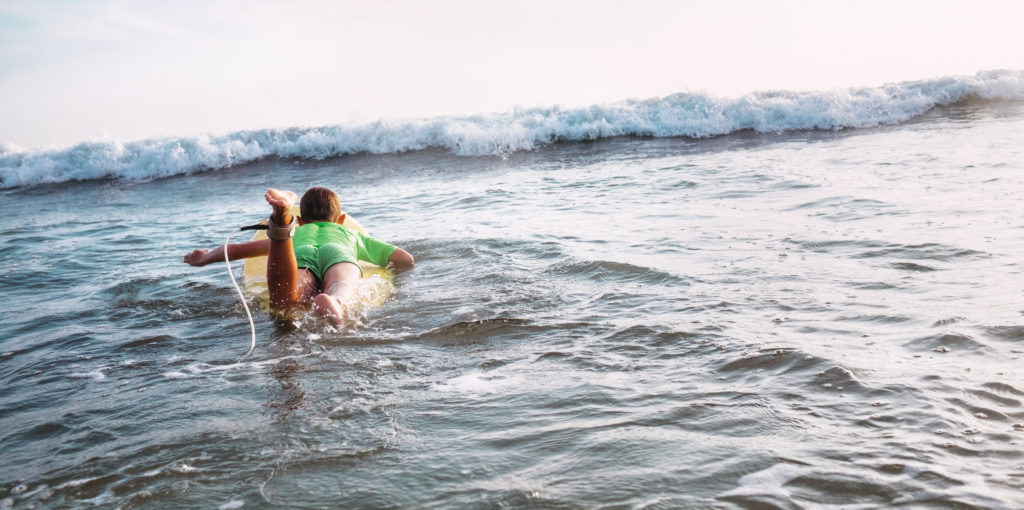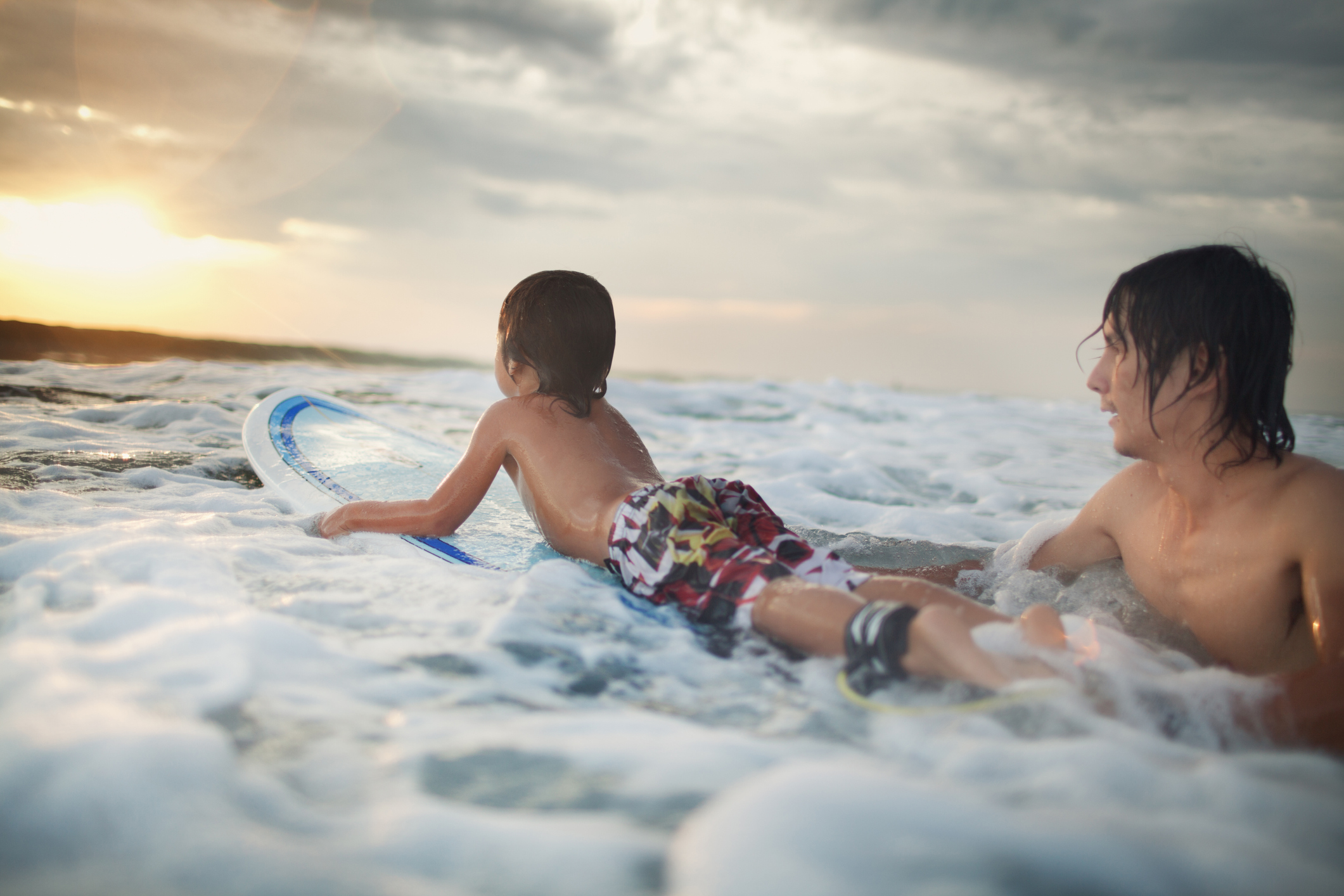There’s over a month left of summer, which means you still have plenty of time to hit the beach and catch some waves. Or, in the case of kids and teens, there’s still plenty of time to hit the beach and learn to catch some waves.
Surfing–a fun, healthful, physically and emotionally stimulating activity – is the perfect sport for the current heatwave. A great alternative for young people who want to be active outside group sports, surfing provides many of the same developmental and health benefits, while imparting life lessons not readily found elsewhere.
Health, Skill Building and Developmental Benefits
Swimming
The image we often have of surfing is that of an extreme—at times dangerous—sport, but youth surf lessons are perfectly safe. Beginners are taught how to swim and maneuver in the ocean, so they are better prepared to navigate its waters. Most surf instructors also provide courses in all-around beach safety. These skills later translate into improved pool and lake swimming, too.
Balance and Coordination
Surfing is literally a balancing act, so it should go without saying that anyone who practices at it will see vast improvements to their balance and coordination. Given that young people’s motor skills are still developing, surfing at a young age can go even further to develop those skills – helping them in other sports and activities.
Strength Building and Cardio
Surfing is a full-body workout, one that combines aerobic exercise with strength building. It’s particularly good for youth who are cross-training, providing a unique kind of workout that will focus on different parts of the body and help athletes avoid overuse injuries.
Instills Confidence
Building a child’s confidence is a key benefit of youth athletics; however, that can be difficult when a sport is closely tied to winning or losing, point scoring, and comparisons to other players. With surfing, it’s all about individual development, so it builds a child’s confidence organically. As kids become more competent surfers, they become more self-assured not just in the water, but in their day-to-day life.
Teaches Patience and Tenacity
Likewise, patience and tenacity are part of all sports, but in surfing—at least in its basic, non-competitive form—there isn’t a focus on hitting a ball, scoring a touchdown or meeting a time mark. Finesse, technique, and most importantly fun, are key, making kids more apt to be patient and persistent as they climb back on their board to catch the next wave.

Spatial Awareness and Boundaries
Surfing requires you be wholly aware of your surroundings so as not to be caught off-guard when you get tossed by a wave or current. You also need to always know where you are so that you can find your way safely back to shore.
A core principle of surfing is to respect and be aware of swimmers and other surfers around you. Tradition states you don’t cut in on another rider’s wave, and you watch out for anyone nearby to avoid injuring them. These are valuable lessons young people can carry into other areas of their life.
Engagement with Nature
Obviously, surfing gets kids to participate in outdoor activities, but intrinsic to the sport is a respect and engagement with nature—particularly the sea. You must be able to read the waves and the tides and feel at one with the water if you hope to be able to ride it. Other outdoor sports—say, soccer, baseball or football—may instill a love for the outdoors in kids, but don’t offer anywhere near the same deep level of communion.
Inclusivity and Accessibility
Surf lessons and experiences are available for individuals with disabilities or learning difficulties, and there are instructors and organizations that provide lessons for youth using specialized equipment such as tandem boards and beach-access wheelchairs. Meanwhile, organizations like Access Surf and Surf for All have done great work in building community based programs that make the ocean accessible for all!
Philosophy
Of all the sports and physical activities that have become part of our culture, surfing has always been the most philosophical, reflecting on life being like a wave and encouraging us all to just go with the flow. After all, surfing isn’t just a sport, but a way of life. Hopefully kids who take surfing lessons will pick up some its relaxed attitude, which stands in stark contrast to the pace of other sports and modern life in general.
As you can see, surfing is a wonderful way to encourage kids to have fun outdoors, respect nature, build confidence and learn important life lessons.
There are hundreds of surf instructors and courses in areas where surfing is available, so make sure you do your research before choosing the right one for your child. Make sure they are licensed and accredited, that the instructors are trained and certified in first aid, and that they foster a positive environment.
Most experts agree that 8 is a good age for kids to start learning how to surf, although they can begin sooner (however, kids younger than 8 will require adults to be present with them during every moment in the ocean).
Make sure to talk to your kids before signing them up for lessons—surfing, like any sport or activity, is not right for everyone, even if some of the benefits and lessons it imparts are.

Further reading:
Why are Water Sports, Like Surfing, Great for Kids?



